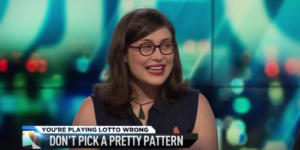Reading clickbait
Q: Did you see women who own horses live 15 longer than those who don’t?
A: Fifteen what? [thanks, David Hood]
Q: Years.
A: There’s an obvious reasons why women who own horses would live longer than those who don’t. Horses are expensive; women who can afford them will be more affluent than average. There could easily be other confounding factors, too
Q: But 15 years?!
A: Ok, that’s a lot. But remember, this is just an observational study — and it might not even be a representative sample. It could be some sort of clicky bogus poll
Q: Where they ask people if they own a horse and how old they were when they died? Yeah right.
A: Um. Ok. Maybe not a bogus poll. But 15 years just isn’t plausible, and it’s obviously not a randomised trial.
Q: “The double blind study followed women in different age groups over a forty year time frame to capture this objective data.”
A: Double blind?
Q: What it says.
A: How could you possibly have a double blind study of horse ownership?
Q: They could get alpacas instead. Or virtual reality games about horses. Or something.
A: That’s not double blind. That’s active-control. Double blind would mean you got an alpaca instead of a horse AND YOU COULDN’T TELL! Is there a link to the research?
Q: I hoped you’d find it, like you usually do.
A:
Q:
A: Really?
Q:
A: Ok. One of the other copies of this story says the lead scientist is Gary Cockburn. There are three papers on the PubMed database with a “G Cockburn” as author. None is even slightly related to this story. There are seven papers with a “Cockburn” as author and some reference to “horse”. None is even slightly related to this story. AND YOU CAN’T HAVE A DOUBLE BLIND STUDY OF HORSES!
Q: They made it up?
A: This is why you shouldn’t follow those links at the bottom of the page
 people.
people.